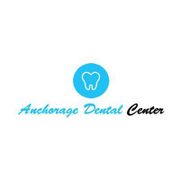
People with halitosis experience chronic bad breath, which can be unpleasant and embarrassing. Beating halitosis usually requires better at-home care or a trip to the dentist. If you experience this issue, here’s all you need to know about it to improve your symptoms.
What Causes Halitosis?
In many cases, chronic bad breath is linked to poor oral health. Lack of daily brushing and flossing causes plaque, which contains bacteria and food debris, to accumulate.
Dry mouth is another issue known to cause foul odors. Saliva prevents plaque from clinging to the teeth, and without enough of it, bad breath may occur. Certain medications, such as antihistamines and muscle relaxers, also cause the mouth to become drier.
Pungent foods, including onions and garlic, may cause bad breath. Diets high in proteins also produce excess amino acids in the body, increasing the risk of this issue.
Medical conditions, including diabetes, asthma, and sinus infections, are also linked to halitosis.
How Can It Be Treated?
 Getting rid of halitosis requires treating the underlying issue. Along with visiting your dentist for biannual teeth cleanings, you must also brush your teeth twice a day for at least two minutes per session. Flossing daily is also very important, as it removes plaque and food debris from between the teeth. You can also use a mouthwash after brushing to freshen your breath.
Getting rid of halitosis requires treating the underlying issue. Along with visiting your dentist for biannual teeth cleanings, you must also brush your teeth twice a day for at least two minutes per session. Flossing daily is also very important, as it removes plaque and food debris from between the teeth. You can also use a mouthwash after brushing to freshen your breath.
To decrease halitosis related to diet or medical conditions, drink more water. Water washes down food particles and helps you fight dry mouth. Experts recommend drinking at least half a gallon of water a day.
If you’re concerned about your breath, visit the caring dentists at Anchorage Dental Center. This team of dental care providers treats every member of the family with the utmost compassion and care. They will also instruct you on proper at-home dental care during your exam. Call (907) 278-2521 to schedule an appointment or learn about their available dental procedures online.
About the Business
Have a question? Ask the experts!
Send your question

